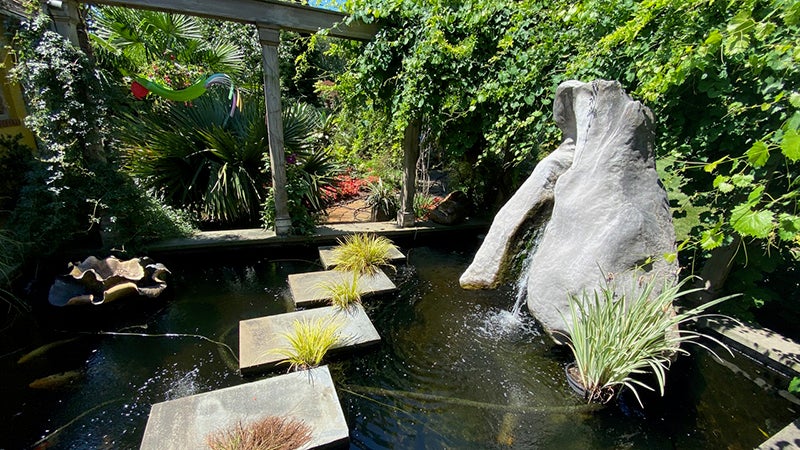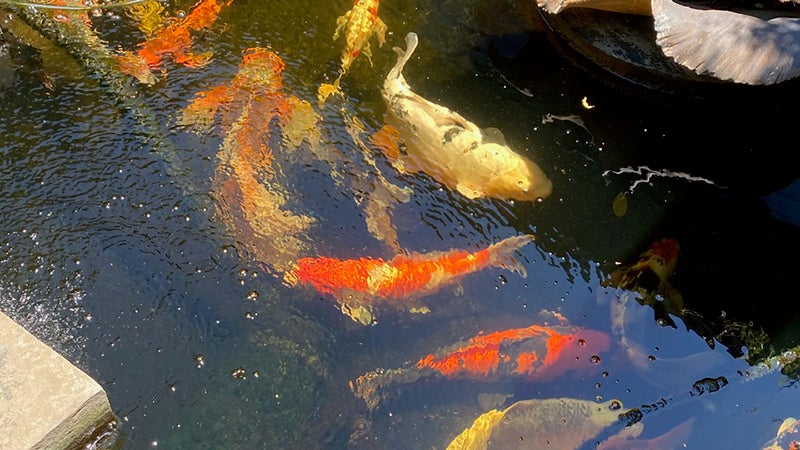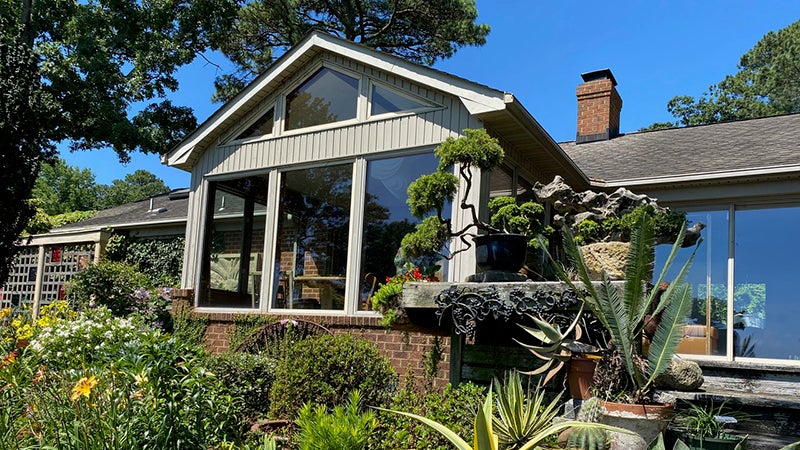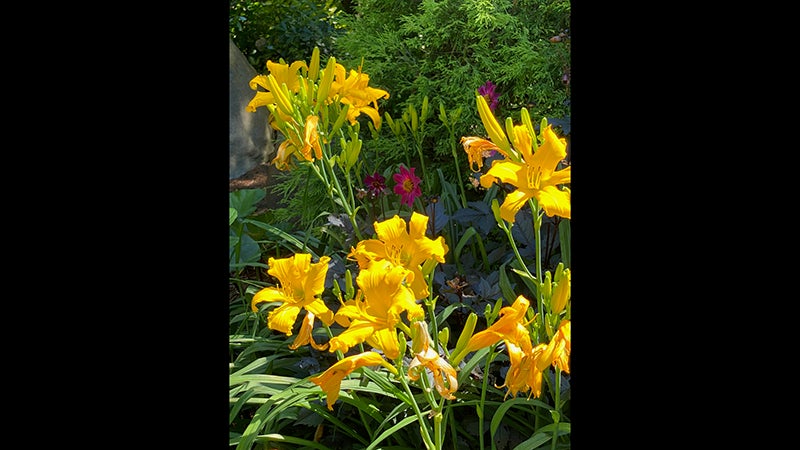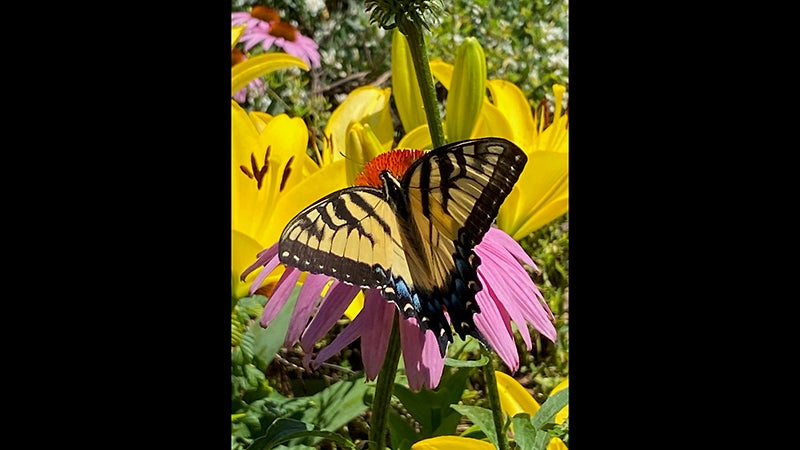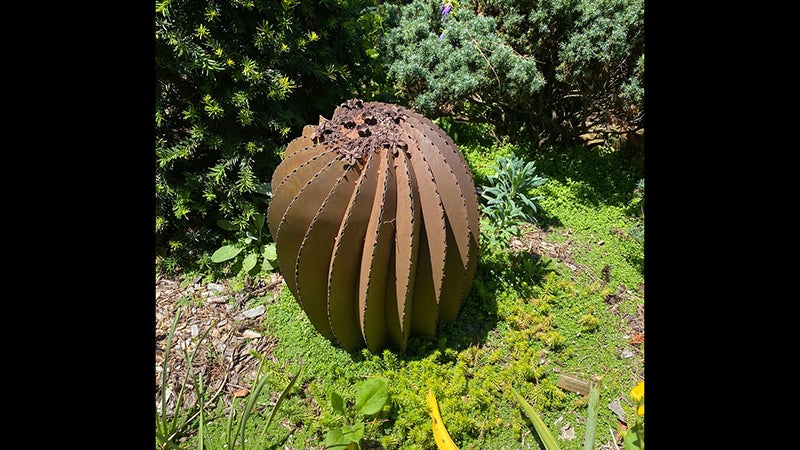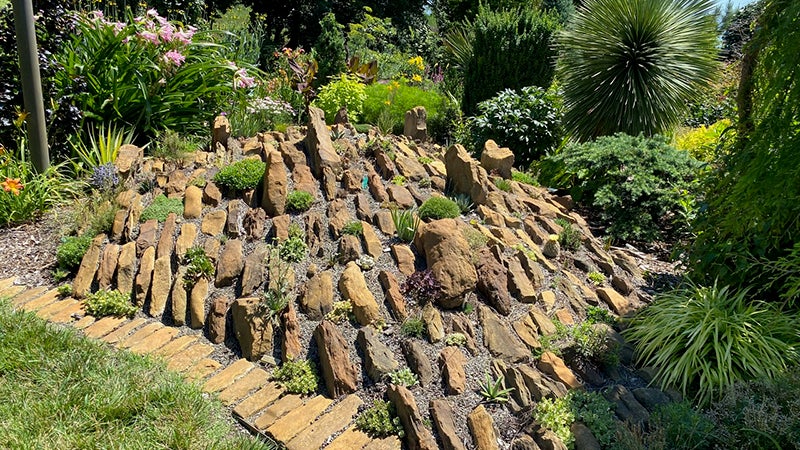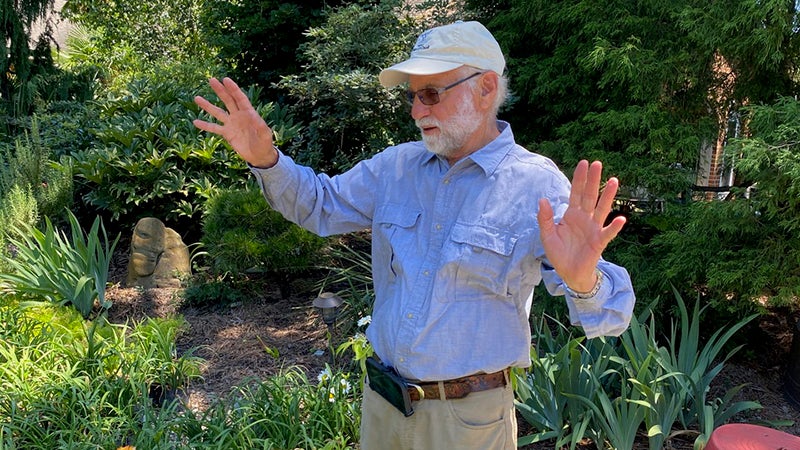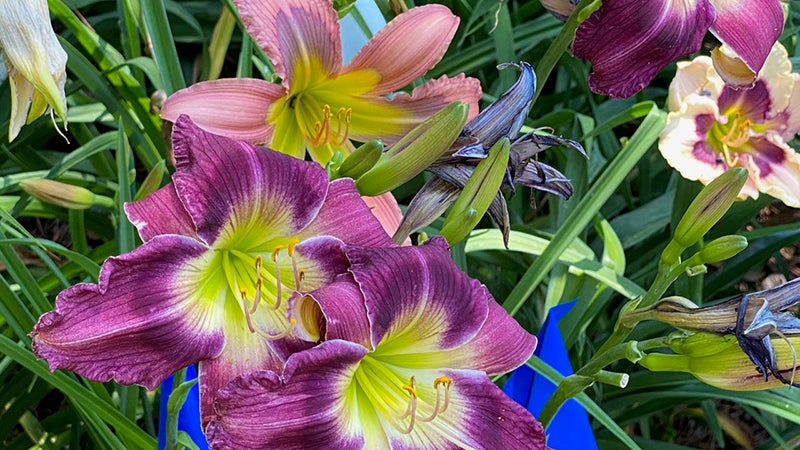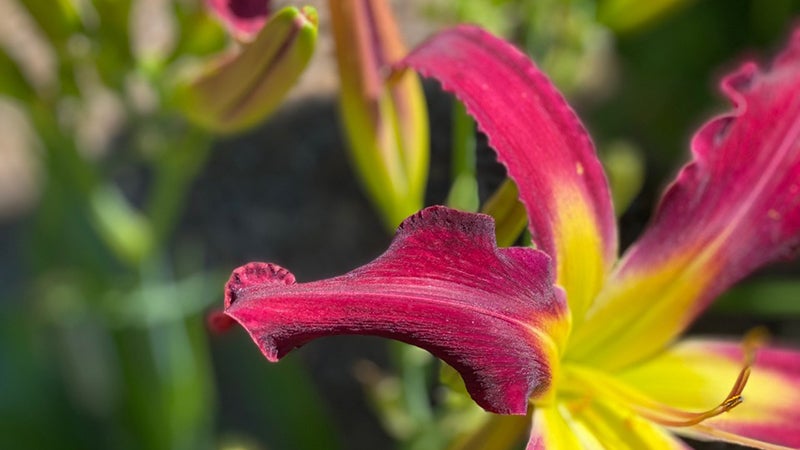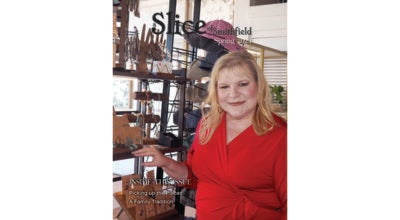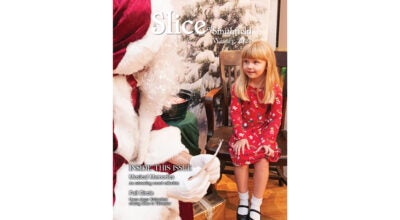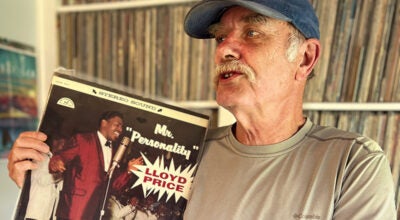A not-so-secret garden
Published 4:05 pm Wednesday, July 28, 2021
Story by Phyllis Speidell
Photos by John H. Sheally II
Walking through the lush, wandering gardens overlooking Batten Bay brings to mind a line of classic poetry — “The earth laughs in flowers.”
While Ralph Waldo Emerson may not have been writing about the two acres of gardens Linda and Bill Pinkham have created at their Carrollton home, the line is still apropos. Who couldn’t smile when every garden path seems to lead to a horticultural surprise?
The unexpected begins with the unique pathway between the Pinkham home and the gardens — via stepping stones crossing a pond alive with colorful Japanese koi. These are collector’s gardens, according to Bill Pinkham, with a diverse array of specimens rather than broad swaths of similar plants. Here you can see some of the many daylilies the couple have bred over the years as well as an array of other scenic plantings, vignettes featuring trees, shrubs and flowers — some familiar, some exotic but all beautiful.
Pathways and more stepping stones wander through flowering plants, lush green shrubs and well-tended trees. Non-gardeners might not recognize a rice paper plant, ostrich fern, Chinese May apple, a slender silhouette (a columnar sweet gum), a feathery leafed bald cypress or a weeping copper birch — but they all flourish in the gardens.
Both Pinkhams are artists, heavily influenced by Japanese culture. Linda is skilled in ikebana, the demanding Japanese art of flower arranging, and Bill leans toward the same influence in the art pieces he creates in his garden site pottery.
The couple met when they were both horticultural students at Virginia Tech. Bill Pinkham grew up in Virginia Beach and credits nature camps with fueling his interest in horticulture. Linda Pinkham hails from Fieldale, a small town near Martinsville, and grew up loving nature. After graduation, Linda Pinkham worked first at the Virginia Extension Service while Bill, with a partner, launched Smithfield Gardens in the 1970s. A few years later, Bill bought out the partner — leaving him and Linda to run the business. He handled the landscaping end of the business while Linda focused on the retail side.
“We were scared,” Bill said. “But we were also determined to succeed and pay the bills.”
Determination and talent paid off — Smithfield Gardens flourished as a favorite shopping spot for gardeners and those who wished they were.
The business grew into a Hampton Roads landmark, the place to go for quality plants, garden equipment and landscaping. After 30 years, the Pinkhams retired, sold the business to their general manager, Tom Conway, and focused their energies on the extensive gardens they created at their waterfront home in Carrollton.
Their home gardens are a breathtaking maze of landscapes — trees, shrubs and flowering plants intermixed with an eclectic collection of garden art. A Florida Keys-style travertine tiled wall garden. hung with plants, includes a sculpture by Key West artist John Martini. The sculpture’s two seemingly perplexed figures reflect the Pinkhams’ frequent question of where to best place a new plant or art piece.
Indeed, the Pinkhams have placed each garden item for optimum display in spaces that still feel open and uncluttered.
Bill admits to loving rocks. When the couple left Smithfield Gardens in 2002, they brought large boulders home to create a dramatic south-facing rock garden that includes a large Whale’s Tongue Agave. Another garden area features what appears to be a pair of abstract stone sculptures but are actually large rock formations rescued from a Lexington farm field.
That rock fondness also led to one of the gardens’ more unusual plantings — a crevice garden. Something like an elevated rock garden, the crevice or step garden mimics the way plants grow at high elevations such as in mountain crevices in colder climates. Bill Pinkham worked with horticulturists at the Denver Botanic Gardens to learn more about creating the same effect in this climate.
Both Pinkhams enjoy developing new varieties of daylilies. Linda Pinkham oversees naming each new one — a complex task, he commented, since there are already 90,000 existing names. She also takes charge of another formidable task — keeping the gardens well weeded.
As you wander through the gardens, you may be joined by a friendly feline trio — Sassy, Boots and Zipper — adopted by the Pinkhams to control the vole population. As charming as the cats may be, Bill rates them as “useless” in the vole battle. Instead, he relies on an expanded slate gravel, with sharper edges, to repel the rodent plant thieves. To deter larger plant predators, the couple edged the gardens with barely-seen, deer-proof fencing.
The Pinkhams have seen a general increase in gardening interest and credit that growth, at least in part, to the COVID-19 pandemic.
“The pandemic has encouraged people to become plant nuts, raising plants and looking for specialty plants,” Bill said. “Prices have skyrocketed into the thousands of dollars for some plants.”
Their once-flourishing Smithfield Gardens remains empty on Route 17 since the business fell victim to the housing market bust in 2007 and Conway sold it. The current owners, Dwight and Jamie Schaubach, are holding the property, Dwight Schaubach said, while they seek out the best quality option for the land. Schaubach added that they hope for a project that will, once again, enhance the community and the scenery along that route.


